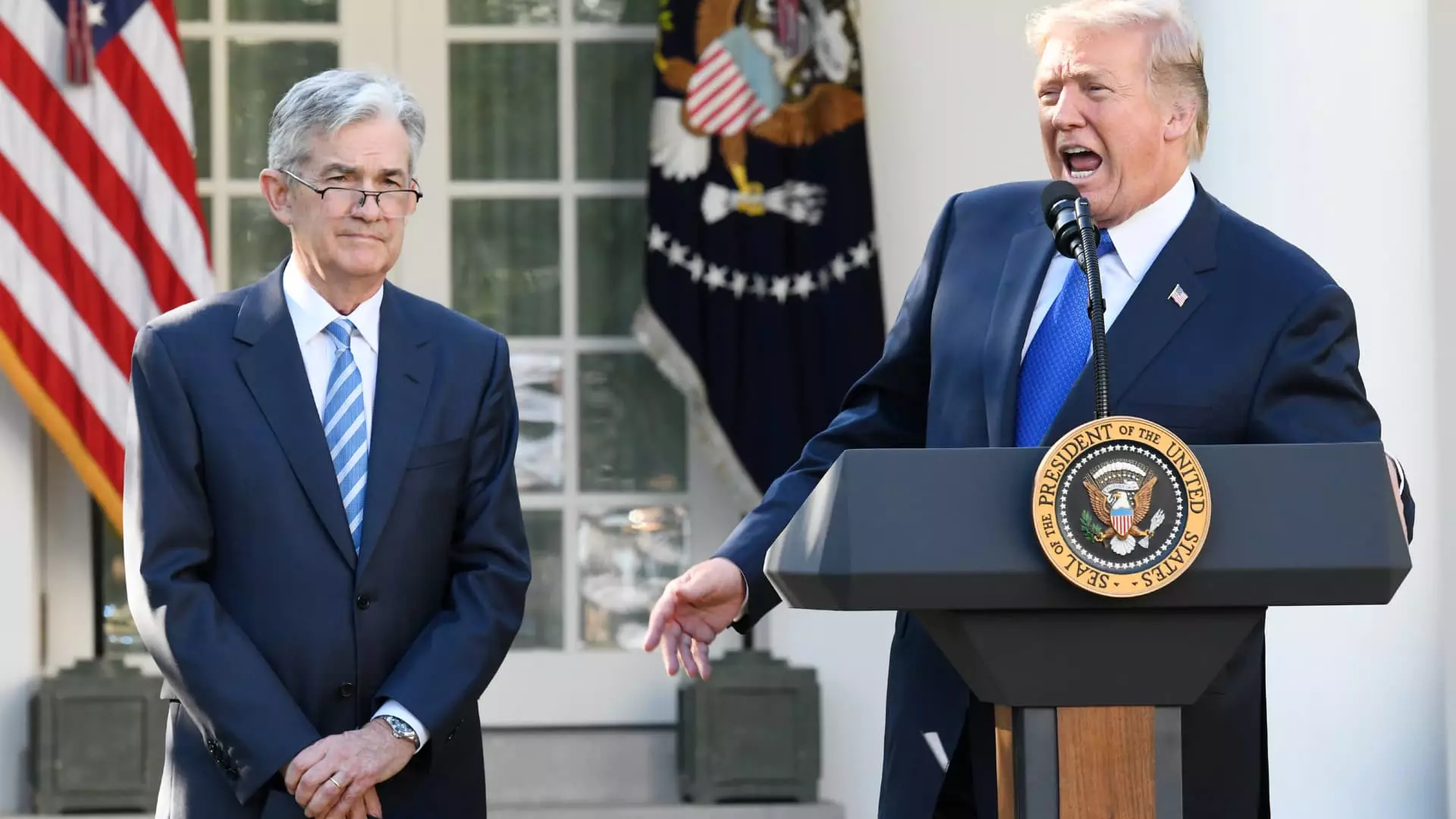In a recent twist of irony, former President Donald Trump is advocating for drastic interest rate cuts despite the presentation of robust employment data that suggests the economy may not be as fragile as he claims. It is astounding how the same leader who asserted the economy’s strength seems to push for measures that could indicate otherwise. The U.S. economy, according to the Bureau of Labor Statistics, added 139,000 jobs this May, comfortably surpassing the anticipated 125,000. This is a signal of resilience, yet Trump is behaving as if we are maneuvering in an economic minefield that necessitates an aggressive approach by the Federal Reserve. His appeal for interest rates to be slashed by one percentage point is less about economic necessity and more about cultivating a narrative that perpetuates his legacy.
Disrupting Stability for Political Gains
Trump’s demands for lower interest rates appear to stem from a fundamental misunderstanding of economic principles or perhaps a calculated political maneuver intended to shape public perception. By pushing for a significant rate reduction, Trump risks distorting a thriving economy with artificial fiscal stimulus that serves the short-term political goal of boosting his image rather than long-term stability. His insistence that the Federal Reserve, led by Chairman Jerome Powell, should emulate the European Central Bank’s recent rate cuts seems disingenuous. Key differences in economic indicators between the U.S. and Europe need careful consideration, but Trump’s oversimplifications resonate with an anxious base desperate for reassurance in their leader.
Fed’s Balancing Act Amid Trump’s Critique
Federal policymakers are engaged in a delicate balancing act, especially when confronted with Trump’s incessant prodding to lower rates. While it is true that other central banks have proactively adjusted their monetary policies, the contrasting economic conditions imply that such actions could prove detrimental if copied blindly. Trump’s continuous ridicule of Powell—labeling him as “too late” and a “disaster”—reveals more about Trump’s fragile ego than about actual economic strategies. It is troubling to see a former president publicly undermine the independence of the Federal Reserve. Attacking the Fed’s autonomy for personal political expediency echoes troubling patterns seen worldwide where leaders erode the institutional integrity necessary for sound economic governance.
An Alarmingly Simplistic View of Inflation
Trump’s rhetoric insinuates that slashing interest rates would “cost our country a fortune,” but he conveniently omits the broader implications of such a move, particularly regarding inflation. Trump argues that lowering rates would facilitate cheaper borrowing and stimulate growth during uncertain times, but at what cost? Economic theory suggests that such a sudden and sweeping cut, especially amidst indications of rising wages—growing at a surprising 3.9%—could trigger inflation beyond manageable levels. Powell and the Federal Reserve are right to remain cautious in implementing unified approaches that prioritize immediate political advantages over sustainable economic health.
The Inverse Relationship Between Popularity and Economic Reality
The specter of historical precedents lingers ominously over Trump’s pricing pressures. The last major rate cut by the Fed happened in March 2020, catalyzed by the pandemic’s economic fallout. The perception painted by Trump—that current rate policy is detrimental to growth—belies a more complex reality where responsible fiscal management requires foresight, rather than reflexive response. Polling of market sentiment already indicates dwindling confidence surrounding rate cuts. Traders reduced their forecasting probability for rate adjustments from 74% to a mere 22% following the jobs report. This contradiction hints at a chilling disconnect between Trump’s favorable economic narrative and the prudence required by policymakers.
In essence, Trump’s injection of hyperbolic claims into the economic discourse complicates the narrative. By attempting to frame Powell as the antagonist in a supposed economic revival story, he is weaving a tale that could derail responsible policy-making and lead to disastrous outcomes. Desiring a simple solution to economic complexity is not just naïve; it is perilously reckless. Trump’s misplaced ambitions diminish trust in essential institutions, and instead of fostering economic vitality, he risks creating unforeseen challenges that he may find difficult to address in the long run. The legacy of sound economic policy cannot be overshadowed by a quest for personal validation or temporary popularity.


Leave a Reply